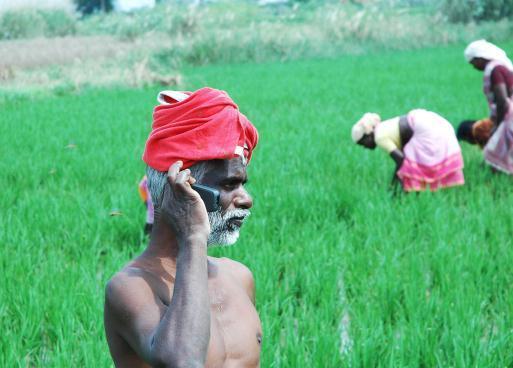GSMA joins alliance to drive down internet access costs
Telecoms trade association the GSMA has announced that it has joined the Alliance for Affordable Internet (A4AI), a coalition with 50 members, including Google, Alcatel-Lucent, Ericsson, Facebook, Intel and Microsoft, committed to bringing down the cost of internet access in developing nations.
January 22, 2014

Telecoms trade association the GSMA has announced that it has joined the Alliance for Affordable Internet (A4AI), a coalition with 50 members, including Google, Alcatel-Lucent, Ericsson, Facebook, Intel and Microsoft, committed to bringing down the cost of internet access in developing nations.
A4AI was launched in October 2013 and said its primary focus is to support the UN Broadband Commission to achieve its goal of providing entry-level broadband access priced at less than five per cent of a country’s average monthly income.
The GSMA aims to help A4AI identify policy and regulatory barriers impacting the affordability of internet access and devise plans to address the issues globally.
“Since internet access in many parts of the developing world is almost exclusively mobile, any policies or regulations that help to bring down the total cost of ownership of mobile can have a significant impact on the affordability of internet access to end consumers,” Tom Phillips, chief regulatory officer at GSMA told Telecoms.com.
He explained that in order to enhance the affordability of mobile broadband services the trade association will team up with A4AI to advise policy makers to implement a number of changes to current regulation.
The GSMA wants regulators globally to maximise the availability of harmonised spectrum, allow spectrum aggregation among operators and not to legislate discrimination in favour of new entrants. It also wants regulators to ensure that spectrum licences remain valid for decades, are technology neutral and carry with them the presumption that they will be renewed by the holder when they expire.
The 10th annual LTE World Summit, the premier 4G event for the telecoms industry, is taking place on the 23rd-26th June 2014, at the Amsterdam RAI, Netherlands. Click here to download a brochure for the event.
The body also wants regulators to allow operators to trade spectrum voluntarily and to be free to negotiate deals to trade infrastructure. It wants to abolish sector-specific taxation such as levies on mobile devices and airtime, and for governments and regulators to reassess their approach to Universal Service Fund (USF) levies.
The GSMA said it has also campaigned against mobile-specific taxes by promoting the social and economic impact mobile usage brings to nations. Phillips outlined one example of the positive impact of reducing mobile-specific taxes; the removal of handset taxes in Kenya in 2009.
“The Kenyan government removed the 16 per cent value added tax (VAT) on mobile handsets, bringing down the tax as a proportion of the cost of mobile from 25 per cent to 21 per cent,” he said. “Handset purchases increased by more than 200 per cent since the removal of VAT in Kenya and mobile connection penetration increased from 50 per cent to 70 per cent of the population in Kenya between 2009 and 2011.”
He added that another example was in 2007 when the Uruguayan government abolished airtime taxes, which resulted in a doubling of mobile penetration over the following five-year period.
The GSMA said that prior to the launch of A4AI it worked with the alliance to help shape its principles and policy positions.
About the Author(s)
You May Also Like








.png?width=300&auto=webp&quality=80&disable=upscale)


_1.jpg?width=300&auto=webp&quality=80&disable=upscale)


.png?width=800&auto=webp&quality=80&disable=upscale)